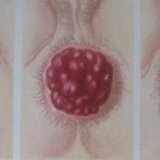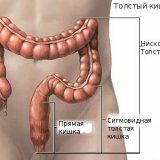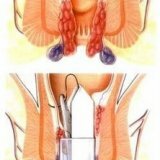Diarrhea( diarrhea) as a symptom: possible causes, treatment, prevention of dehydration
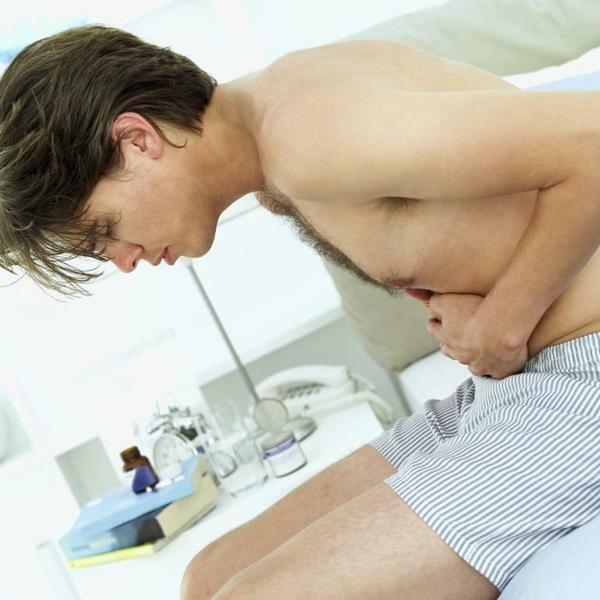 Diarrhea( it is commonly called the word "diarrhea") is an unpleasant symptom of many pathologies that have completely different genesis and a causative factor.Diarrhea is usually considered a condition characterized by frequent defecation with changes in stool parameters.When diarrhea in parallel, patients often complain of accompanying uncomfortable symptoms: colic, abdominal pain, vomiting, fever.The greatest danger is diarrhea for children, as with diarrhea they quickly become dehydrated, which carries very serious complications, up to a lethal outcome.
Diarrhea( it is commonly called the word "diarrhea") is an unpleasant symptom of many pathologies that have completely different genesis and a causative factor.Diarrhea is usually considered a condition characterized by frequent defecation with changes in stool parameters.When diarrhea in parallel, patients often complain of accompanying uncomfortable symptoms: colic, abdominal pain, vomiting, fever.The greatest danger is diarrhea for children, as with diarrhea they quickly become dehydrated, which carries very serious complications, up to a lethal outcome.
Causes of diarrhea
 There are a number of factors that can cause diarrhea, both in adults and children. These include:
There are a number of factors that can cause diarrhea, both in adults and children. These include:
- Problems with intestinal peristalsis.
- Infectious diseases of the digestive tract, which become a source of toxins in the intestine.To such diseases carry: enteroviruses, cholera, food toxicoinfection, salmonellosis.
- Disorders in the intestinal microflora on the background of taking antibiotics, anti-cancer drugs, with HIV disease.
- Irritable bowel syndrome, which is formed in cases of neuropsychiatric disorders.
- Enzyme insufficiency and enzymopathies.
- Pathologies of an autoimmune character: ulcerative colitis, Crohn's disease.
- Hereditary pathologies, which are based on intolerance of certain products or substances.Such congenital states include: celiac disease, pancreatitis( chronic and acute), lactose insufficiency, cirrhosis.
Causes of diarrhea with blood in an adult
Diarrhea with blood can occur as a result of a variety of factors.The admixture of blood in the feces itself already causes anxiety in a person. The reasons for its appearance in feces may be the following:
- Diverticulitis is an inflammatory process in the lower intestine.This reason is most common in people after 45-50 years.
- Hypodinamy is an inert way of life, constantly sedentary work, when a person moves a little and there is a lack of movement, sedentary work.
- Ulcerative-erosive processes in the digestive tract in the upper parts can also provoke the appearance of blood impurities in the fecal masses( peptic ulcer of the stomach and duodenal ulcer in the stage of exacerbation or chronicization).
- Hemorrhoids, anal fissures.In this case, the blood in the feces will be in the form of clots or veins, and necessarily scarlet, since the source of the bleeding is close( the blood simply does not have time to fold).In parallel with this symptom, the patient feels discomfort, pain in the anus, itching, burning, etc., but diarrhea is a sign of concomitant pathology, but the appearance of blood is evidence of hemorrhoids.
- Rectal cancer.It can provoke the appearance of diarrhea in the patient, and the presence of blood in the stool.
- Bleeding.Diarrhea with blood in an adult may indicate internal bleeding in the stomach, esophagus, duodenum.In this case, the chair will be of dark color, "tar".The cause of bleeding may be: cirrhosis, peptic ulcer, stomach cancer, esophageal varices.
- Chronic pathologies in the form of Crohn's disease and ulcerative colitis often provoke the appearance of blood veins( bright) and clots in feces.
- Infectious diseases.If diarrhea with blood is accompanied by fever, colic, abdominal pain, then you should always seek medical help.This clinic can be observed in dangerous diseases that require immediate treatment: salmonellosis, dysentery, etc.
Diarrhea types
Concerning the course of diarrhea happens:
- is chronic when diarrhea persists for a three-week period;
- acute, in which diarrhea lasts up to 3 weeks.In view of the mechanism of development, diarrhea is classified as follows:
- is hypokinetic - with its stool masses mushy or liquid, there are few of them, there is a fetid odor - this is the result of a decreased rate of food intestinal progression;
- Hyper-secretory - diarrhea is watery and copious in nature, which is the result of increased secretion of salt and water into the intestines;
- Hyperkinetic - uninvolved stool liquid or mushy, is formed with an increase in the rate of movement along the intestines of digested food;
- hyperexceptive - it is formed when fluid is infiltrating into the intestinal lumen, which in most cases is already inflamed, such diarrhea is characterized by a watery but ungainly stool in which blood and mucus may be present.
- Osmolar - is a diarrhea due to a decrease in the absorption of salts and water by the walls of the intestines, in which feces can be very much, they are fatty and contain the remains of undigested food.
- quickened stool;
- incontinence;
- stool with fetid odor;
- color change;
- liquid watery or mushy consistency of stool;
- presence in the stool of remnants of semi-digested food;
- admixture of blood;
- presence of mucus.
- nausea;
- body temperature elevation( from 37 to 40C);
- abdominal pain( may have spasmodic, blunt, pulling, cutting character).
- weakness in the body;
- thirst;
- dryness of mucous membranes;
- lowering of figures of arterial pressure;
- dizziness;
- tachycardia;
- is an unconscious condition;
- "flies" before the eyes;
- Cachexia is the extreme degree of dehydration.
-
 allergic to certain foods;
allergic to certain foods; - Intestinal infections( amebic dysentery, rotavirus, campylobacteriosis, escherichiosis, salmonellosis, bacterial genesis) often cause temperature and diarrhea in a child;
- travelers diarrhea.It begins when a child travels with parents, and becomes infected with bacteria that live in plural form on the door handles of trains, toilets, and public transport.Also unfavorably affects the unusual food, acclimatization;
- functional diarrhea in children is a condition in which the patient does not have any pathological changes in the gastrointestinal tract, pain and other symptoms other than diarrhea, but there are violations of intestinal motility;
- taking medications - diarrhea in children as a side effect when taking certain medicines( antibiotics);
- overeating( may cause vomiting and diarrhea);
- intolerance of certain products.
- untimely introduction of complementary foods( very early);
- artificial feeding;
- introduction as a complementary feeding of the wrong products;
- non-observance of the necessary interval between the introduction of a new product;
- Infection with intestinal infections;
- large portions of complementary foods;
- intolerance of the products introduced;
- ingestion of some food by the mother's gnawing mother;
- lactase deficiency, in which diarrhea is observed from the first days of life;
- Cystic fibrosis - characterized by abundant diarrhea( liquid) with an unpleasant odor and fatty shine;
- ARI, in addition to catarrhal phenomena in the nasopharynx, also often in babies provokes diarrhea.
- spontaneous abortion;
- lowering the figures for blood pressure in the mother;
- Attachment of renal failure in pregnant women;
- formation of congenital anomalies in the fetus.
-
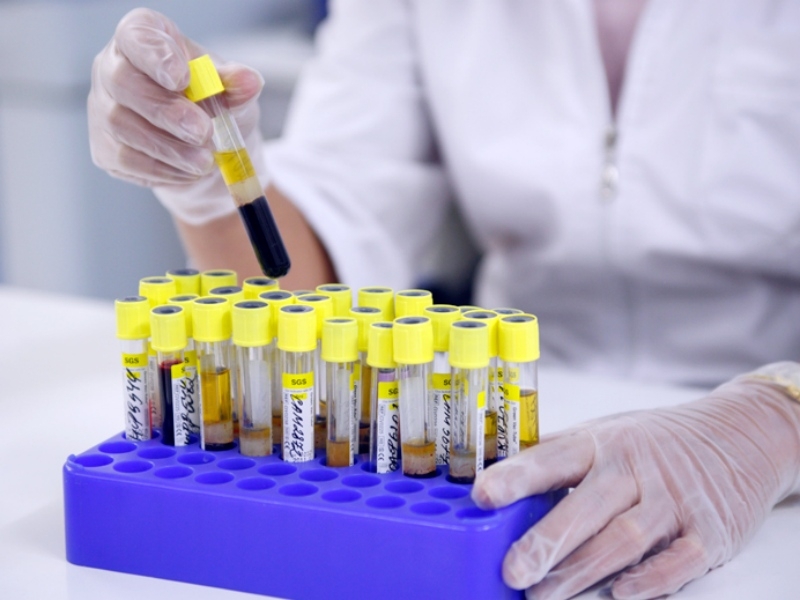 Anamnesis and examination.Patients often complain of frequent loose stools( 10-15 times), flatulence, rumbling in the abdomen, colic.They can connect their appearance with the use of certain foods, drugs, exacerbation of chronic cholecystitis, pancreatitis, gastritis, etc.Also family history is taken into account, that is, the presence of hereditary pathologies in relatives.
Anamnesis and examination.Patients often complain of frequent loose stools( 10-15 times), flatulence, rumbling in the abdomen, colic.They can connect their appearance with the use of certain foods, drugs, exacerbation of chronic cholecystitis, pancreatitis, gastritis, etc.Also family history is taken into account, that is, the presence of hereditary pathologies in relatives. - Laboratory research.
- Instrumental data
- examination of feces for the presence of latent blood in it;
- blood test;
- blood for biochemistry;
- sowing of feces( allows to reveal a bacterial infection);
- coprogram( this is an analysis of stool for the presence of fat, undigested food, coarse dietary fiber);
- feces analysis for parasitic diseases( lamblia, ascarids, pinworms, opisthorchiasis);
- respiratory tests with glucose and xylose.Their task is to identify the syndrome of excessive bacterial growth.
- Colonoscopy - Optical examination of the mucosa of the large intestine;
- CT of abdominal organs;
- EGDS - endoscopic examination of the esophagus, stomach and duodenum;
- taking from the stomach material for the presence of the bacterium Helicobacter pylori ;
- Irrigoscopy - examination of the colon by an X-ray method;
- Ultrasound of the abdominal cavity - allows to evaluate the work of the digestive system;
- Recto-manoscopy is an endoscopic examination of the rectum and sigmoid colon.
-
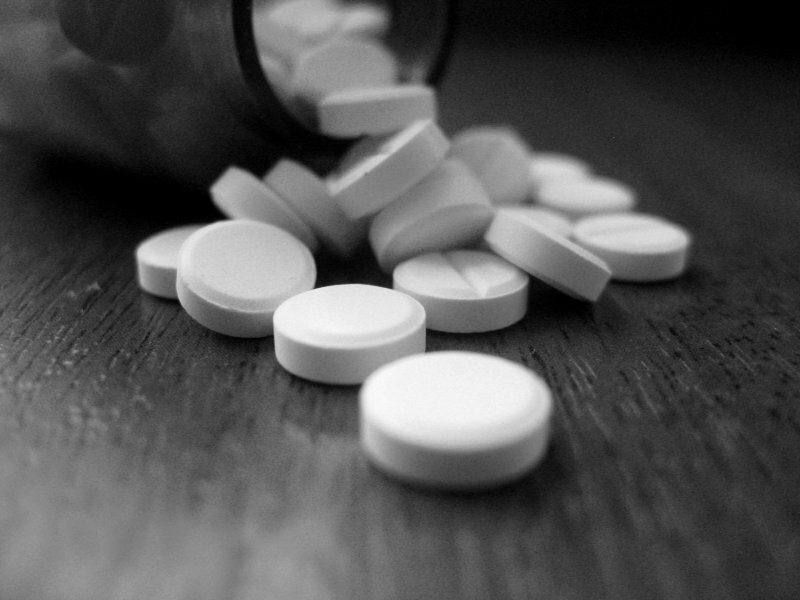 remedy for the infection that caused diarrhea;
remedy for the infection that caused diarrhea; - preparations regulating intestinal motility;Anesthetics, antispasmodics;
- ;
- sorbents for bowel cleansing;
- probiotics for the restoration of impaired intestinal microflora;
- adherence to the optimal drinking regime;
- parenteral administration of aqueous electrolyte solutions during severe dehydration;
- antibacterial drugs - are prescribed for diarrhea caused by bacterial infection;
- antiviral agents - used for diarrhea of viral origin;
- cholagogue medicines - indicated for diarrhea on the background of cholecystitis;
- enzymes - it is advisable to use in case of diarrhea as a result of pancreatitis.
Symptoms of diarrhea
Diarrhea can be accompanied by a number of other signs, which ultimately allows the doctor to differentiate the patient's illness from a number of others in the current clinical picture.In particular, with diarrhea it can be:
In parallel, the patient may experience additional symptoms of diarrhea:
When diarrhea is common, dehydration often occurs, the symptoms of which are:
Diarrhea in children
In childhood, the causes of diarrhea are slightly different than in adults.Very often they are associated with malnutrition and intestinal infections. Diarrhea in children may occur as a result of the following reasons:
Important : often in children diarrhea is the result of not digesting certain types of foods or their quantity.The inability of the child's digestive tract to digest and assimilate one or another food is manifested by diarrhea after its administration.In this case, the rejection of this food is the treatment of the disease.
Diarrhea in the baby can have several other reasons due to the peculiarities of its nutrition( breastfeeding or artificial feeding). These include:
Diarrhea in pregnancy
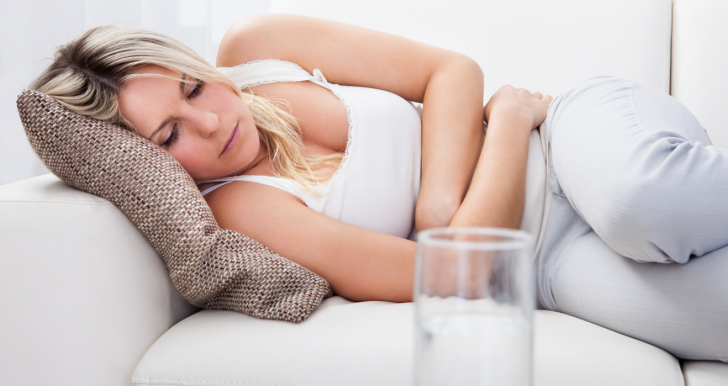 Causal factors of diarrhea in pregnancy are the same as in adults.The only difference is the severity of the clinical picture, since during this period of a woman's life any diseases, infections, poisonings are much more difficult.
Causal factors of diarrhea in pregnancy are the same as in adults.The only difference is the severity of the clinical picture, since during this period of a woman's life any diseases, infections, poisonings are much more difficult.Note: diarrhea during pregnancy can have negative consequences, so it is very important to seek medical help immediately after the appearance of the first symptoms.
In this case, the term of pregnancy and the cause of diarrhea are of primary importance.Diarrhea during pregnancy in the early stages can be the result of toxicosis, which occurs quite often.It does not carry a danger to the fetus, because the bacteria provoke it, the intestinal limits do not leave.Severe poisoning can become a threat to the fetus if heavy intoxication of the mother's body is observed and toxins penetrate the placenta into the fetus.
Especially dangerous poisoning fungi, which pass the placental barrier and cause all kinds of defects in embryo development.Diarrhea in early pregnancy is dangerous in the event that the defecation rate becomes more than 5 times in 24 hours.If there is diarrhea and vomiting, this further complicates the situation and requires an immediate request to the doctor. Consequences of severe diarrhea in a pregnant woman can be :
Note: after the 30th week of diarrhea most often causes a virus or late toxicosis.Complications of this situation can be premature birth and thrombosis, so if you have symptoms of diarrhea, you should see a doctor.Sometimes diarrhea at the period from 38 to 40 weeks of pregnancy is a sign of natural cleansing of the body and rapid delivery.
Diagnosis of diarrhea
The disease can have very different causes and can be a manifestation of many pathologies.To make an accurate diagnosis, you need to undergo a routine examination and be sure to tell the doctor about the attendant symptoms. Diagnosis of diarrhea includes:
If necessary or if there are indications, the physician can prescribe the following tests:
The most informative can be such instrumental studies as:
Diarrhea: treatment and prevention of dehydration
Diarrhea in adults requires treatment, which consists of an integrated approach.It is important not only to eliminate the symptoms, but also the cause that caused diarrhea. Diarrhea treatment includes:
To avoid dehydration, it is important to comply with the following rules:
- Abundant drink is the basis for treating diarrhea, because without it all other drugs will be ineffective.
- Drinking more fluid is necessary immediately after the onset of diarrhea.
- It is allowed to drink such drinks with diarrhea: ready saline pharmacy solutions( Regidron), broth of dogrose, compote of raisins, decoction of chamomile.
- It is forbidden to drink juice, milk, soda, sweet tea with diarrhea.
- Drinking is necessary after each act of defecation.
- The volume of the liquid should be about 150 to 300 ml at a time.
- If there is vomiting and diarrhea, then it should be drunk in small sips, otherwise a heavy drink with a volley can trigger an emetic attack.
- It is not necessary during diarrhea, it is important to drink a lot, but if the patient wants to eat, then it should not be denied.
- BRAY - the optimal diet on the first day of diarrhea - banana - rice - apple( baked) - biscuits.
Note: , when there is relief in the patient's condition, from the 2nd or 3rd day you can already enter into the diet meat and yogurt, but low-fat, as well as porridges and pasta.
What to do at home with diarrhea
We recommend that you read: If diarrhea occurs, you should adhere to general medical prescriptions that will help ease the condition of the patient, and adjust the digestive tract. These include:
If diarrhea occurs, you should adhere to general medical prescriptions that will help ease the condition of the patient, and adjust the digestive tract. These include: - Refusal to eat certain foods( fatty meat, eggs in any form, milk, spicy seasonings, soda, cabbage, cucumber, radish).
- Moderate physical activity.
- Obligatory hand washing with soap after visiting the toilet.
- Psycho-emotional rest.
- Follow the diet table number 4.It allows the use of such products: yesterday's bread, lean boiled meat and fish, cereals( not milk), pasta, broths, pilaf, soft-boiled egg.
- Thoroughly wash fruits and vegetables before cooking.
- A proven remedy for diarrhea at home is a blueberry jelly.
More information on possible causes of diarrhea in adults and children, preventive measures and ways to treat diarrhea at home - in video review:
Viktorova Julia, obstetrician-gynecologist

